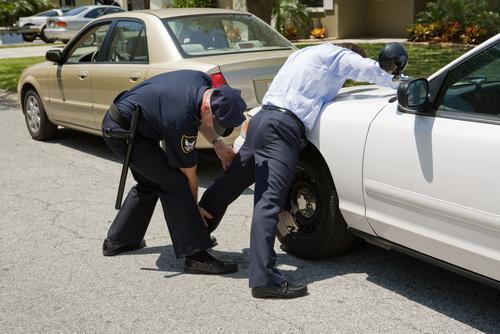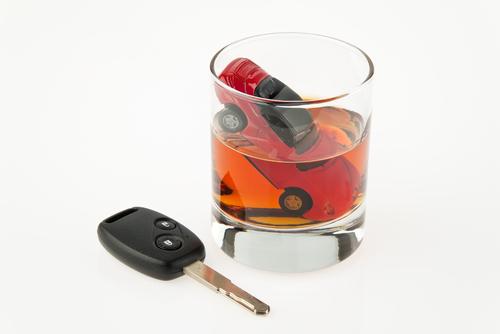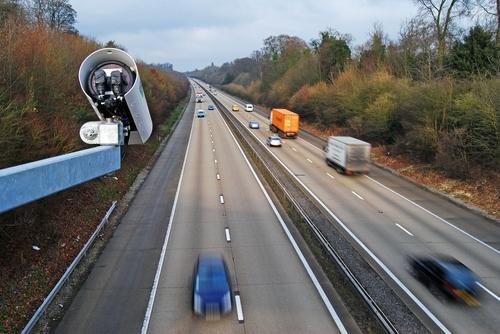Recent Blog Posts
Retail Theft: Employee Theft Costs U.S. Retailers More than Shoplifting
 In most retail establishments, the battle against retail theft is visibly obvious almost immediately. Strategically placed video cameras, anti-theft packaging, and security tags with their corresponding detectors at the door all seem directly aimed at thwarting would-be shoplifters from leaving the store with merchandise they did not purchase. While such efforts may indeed by necessary, a recent study indicates that retailers may face an even greater threat when it comes to stolen merchandise—their own employees.
In most retail establishments, the battle against retail theft is visibly obvious almost immediately. Strategically placed video cameras, anti-theft packaging, and security tags with their corresponding detectors at the door all seem directly aimed at thwarting would-be shoplifters from leaving the store with merchandise they did not purchase. While such efforts may indeed by necessary, a recent study indicates that retailers may face an even greater threat when it comes to stolen merchandise—their own employees.
Merchandise lost to shoplifting, theft, employee or supplier fraud, and administrative error is referred to as shrink in the retail industry. As retailers around the world and across the country continued their anti-theft efforts last year, The Smart Cube and retail loss-prevention expert Ernie Deyle conducted an annual research project to analyze the effects of shrink on the global retail market. The study, funded by inventory management group Checkpoint Systems, found that lost or undervalued merchandise cost retailers worldwide more than $128 billion USD.
Construction Zone Violations and Road Safety
 As Illinois emerges from yet another winter that felt like it would never end, road improvement projects are beginning in earnest throughout the state. Resurfacing, road repairs, and in some cases, full roadway or bridge replacement mean that the orange barrels, cones, and signs will once again be common sights for drivers. While traffic slowdowns and congestion may be a source of annoyance for many, safe driving through construction zones is not only required by law, but necessary for the safety of those working on the roads.
As Illinois emerges from yet another winter that felt like it would never end, road improvement projects are beginning in earnest throughout the state. Resurfacing, road repairs, and in some cases, full roadway or bridge replacement mean that the orange barrels, cones, and signs will once again be common sights for drivers. While traffic slowdowns and congestion may be a source of annoyance for many, safe driving through construction zones is not only required by law, but necessary for the safety of those working on the roads.
Road construction zones can be extremely confusing, with numerous signs and instructions, large vehicles and construction equipment, and large numbers of workers all in the immediate area of cars and trucks often driving at highway speeds. According to Illinois highway authorities, more than 4,300 accidents occur in construction zones on state roads every year, killing dozens and injuring hundreds. A number of those killed or hurt were roadway workers going about their daily jobs.
Budget Cuts Lead to Closing of Illinois Auto Theft Task Forces
 Law enforcement agencies around the state have been forced to shut down stolen vehicle task forces over the last several weeks as a result of budget manipulations coming out of Springfield. An executive order issued by Illinois Governor Bruce Rauner in January froze hundreds of millions dollars in state funds determined to be non-essential spending, including $6 million originally collected from state drivers’ auto insurance premiums to fund the auto theft investigation teams.
Law enforcement agencies around the state have been forced to shut down stolen vehicle task forces over the last several weeks as a result of budget manipulations coming out of Springfield. An executive order issued by Illinois Governor Bruce Rauner in January froze hundreds of millions dollars in state funds determined to be non-essential spending, including $6 million originally collected from state drivers’ auto insurance premiums to fund the auto theft investigation teams.
Task Force History
In 1991, the state legislature passed the Illinois Motor Vehicle Theft Prevention Act, which statutorily created the state’s Motor Vehicle Theft Prevention Council, as a well as a trust fund from which the council and its efforts would be funded. The source of funding was never intended to be tax dollars; instead, the initiative was to be subsidized by insurance carriers at the rate of one dollar per auto insurance policy sold in the state. As a result of the act, regional auto theft task forces were established to investigate stolen vehicle cases, which, in turn, were expected to reduce fraudulent insurance claims and payments.
ACLU Reports Stop-and-Frisk Overuse in Chicago
 According to a new report, the rate of the controversial practice known as "stop-and-frisk" in Chicago puts the Second City among the highest in the nation. The American Civil Liberties Union of Illinois released the report last month which examined the use and potential abuse of such procedures and offered recommendations for maintaining public trust.
According to a new report, the rate of the controversial practice known as "stop-and-frisk" in Chicago puts the Second City among the highest in the nation. The American Civil Liberties Union of Illinois released the report last month which examined the use and potential abuse of such procedures and offered recommendations for maintaining public trust.
History of Stop-and-Frisk
A United States Supreme Court decision dating back to 1968 confirmed that police officers are permitted to stop an individual under the reasonable suspicion that he or she has committed or is about to commit criminal activity. Once the individual has been stopped, the officer is permitted to physically frisk the person, but only if the officer has reasonable suspicion that the individual is dangerous or is in possession of a weapon. There is no requirement for an arrest to be made and documentation to be filed after a stop-and-frisk is minimal, which critics maintain creates the opportunity for abuse of the practice.
Bar Association Advocates Change to Mandatory DUI License Suspension
 Earlier this month, the Illinois State Bar Association (ISBA) proposed changes to the mandatory punishment guidelines in place for drivers convicted of driving under the influence (DUI) in the state. Representatives from the ISBA met with officials from a traffic safety task force created by Secretary of State Jesse White to discuss concerns over the inconsistent application of license suspensions.
Earlier this month, the Illinois State Bar Association (ISBA) proposed changes to the mandatory punishment guidelines in place for drivers convicted of driving under the influence (DUI) in the state. Representatives from the ISBA met with officials from a traffic safety task force created by Secretary of State Jesse White to discuss concerns over the inconsistent application of license suspensions.
Current Mandatory DUI Penalties
Under Illinois law, a first-offense DUI conviction may result in up to one year in prison and fines up to $2,500 plus court costs. Additionally, the law requires suspension of driving privileges for up to one year, with a full suspension for at least 30 days. After 30 days, a driver may be eligible to apply for a Monitoring Device Driving Permit, allowing limited driving privileges conditional to the use of an ignition interlock device and other monitoring requirements.
Fake IDs Not Worth the Risk in Illinois
 Advances in digital technology have made producing and obtaining a false driver’s license or identification care easier than ever. Individuals under the age of 21, obviously, are the most likely try to use fake IDs to get into bars and nightclubs or to purchase alcohol. Fake IDs may also be created and obtained as part of larger identity theft schemes to illegally access a victim’s assets or accounts. Whatever their intended purpose, possession of a fraudulent identification card is prosecutable under law, and potential penalties in Illinois are among the most severe in the country.
Advances in digital technology have made producing and obtaining a false driver’s license or identification care easier than ever. Individuals under the age of 21, obviously, are the most likely try to use fake IDs to get into bars and nightclubs or to purchase alcohol. Fake IDs may also be created and obtained as part of larger identity theft schemes to illegally access a victim’s assets or accounts. Whatever their intended purpose, possession of a fraudulent identification card is prosecutable under law, and potential penalties in Illinois are among the most severe in the country.
What Constitutes a Fake ID?
An identification card that is passed off as an official identification card from any governmental or quasi-government organization that contains false or altered information is considered a "fraudulent identification card" under the Illinois Identification Card Act. A card need only resemble an official ID, or use the words "official," "state," "Illinois," or any other state name to be considered a fake ID.
Illinois Senate Looks to Restrict License Plate Reader Use
 A new piece of law enforcement technology is raising serious privacy concerns as more and more states, including Illinois, begin to employ it. The technology in question is an automatic license plate reader (ALPR). The reader takes photographs of license plates and stores them in a database along with the associated location, creating a file of where specific vehicles were at specific times. Although these ALPR systems have legitimate benefits and have helped solve crimes, they present significant privacy issues. At present the police have the authority to store this information about millions of motorists without due cause for a considerable amount of time. A new bill introduced in the Illinois senate is designed to place limits on the use and retention of ALPR data in order to preserve the privacy of citizens.
A new piece of law enforcement technology is raising serious privacy concerns as more and more states, including Illinois, begin to employ it. The technology in question is an automatic license plate reader (ALPR). The reader takes photographs of license plates and stores them in a database along with the associated location, creating a file of where specific vehicles were at specific times. Although these ALPR systems have legitimate benefits and have helped solve crimes, they present significant privacy issues. At present the police have the authority to store this information about millions of motorists without due cause for a considerable amount of time. A new bill introduced in the Illinois senate is designed to place limits on the use and retention of ALPR data in order to preserve the privacy of citizens.
Automatic License Plate Readers
ALPRs are new law enforcement tools that can track the movement of a variety of vehicles. The system consists of a set of up to four cameras facing various directions installed on road and highway locations, or mounted on police vehicles. The cameras are programmed to automatically capture the license plates of passing cars or, in the case of police car-mounted cameras, the plates of vehicles nearby. The ALPR then sends the image to a police database, time-stamped and tagged with a GPS location. Additionally, if the camera is mounted on a squad car, it can also inform the officer of any outstanding warrants or traffic issues associated with that license plate.
Drivers' Rights during Traffic Stops
 For many people, traffic stops are their most common interaction with law enforcement. This is understandable since an independent study commissioned by the Illinois Department of Transportation reports that there are almost 2.5 million traffic stops in Illinois every year. Yet, despite the common nature of these stops most people do not understand the rights they have in these interactions.
For many people, traffic stops are their most common interaction with law enforcement. This is understandable since an independent study commissioned by the Illinois Department of Transportation reports that there are almost 2.5 million traffic stops in Illinois every year. Yet, despite the common nature of these stops most people do not understand the rights they have in these interactions.
For instance, many people do not realize that they are protected from being pulled over for no reason. Police officers need to have probable cause in order to stop a car without a warrant. However, given the number of potential traffic violations that officers have available, this is usually not a high barrier to being pulled over. The more important protections come into play after the traffic stop starts, such as the right to remain silent, and the right to refuse searches. The Right to Remain Silent The first right drivers have is the right to not answer an officer's questions. People may refuse to answer almost any question an officer has for them. The exceptions to this are requests for drivers' licenses, registration, and proof of insurance, which people must provide. Yet, other questions, such as "Where are you coming from?" do not need to be answered. However, this right exists in the real world. Being needlessly uncooperative with police or being rude to them has the potential to make the traffic stop harder than it has to be. If a driver is coming home from a bar at 3 a.m., they should probably not volunteer the information. If the driver is coming home from church at 11 in the morning, it may be better to just say that. The Right to Refuse Searches The law also provides people with the right to refuse to consent to a search of their vehicle. The limits of this right are important to understand. The right to refuse to consent to a search is not the same as the right to not be searched. Police officers are allowed to search people's cars if they have probable cause to believe that they will find evidence of a crime, regardless of whether the person consents. However, consent eliminates the need for probable cause. If a person does not consent to the search, and the officer finds something, then a lawyer may be able to get that evidence thrown out of the case because it came from an improper search. A driver's consenting to a search eliminates that potential strategy. This can be important because in many instances the evidence that the police found in the car will be key to proving the prosecution's case. The law provides a variety of rights to citizens in order to limit the power of the police. If you are being charged with a crime and think your rights were violated, contact a Kane County criminal defense attorney today.
Understanding the Criminal Appeals Process
 The criminal justice system is about seeking the truth, and in many ways its procedures are designed to give the defendant a fair trial. Unfortunately, mistakes do happen. Judges can make the wrong call about allowing a piece of evidence in, or they can misunderstand the legal standard for making a decision. When those problems arise and end up changing the outcome of a case, criminal defendants have an opportunity to set things right. They may choose to file a criminal appeal. Appeals are legal proceedings in front of a panel of new judges who have the authority to correct errors of law or fact that the lower court judge may have made.
The criminal justice system is about seeking the truth, and in many ways its procedures are designed to give the defendant a fair trial. Unfortunately, mistakes do happen. Judges can make the wrong call about allowing a piece of evidence in, or they can misunderstand the legal standard for making a decision. When those problems arise and end up changing the outcome of a case, criminal defendants have an opportunity to set things right. They may choose to file a criminal appeal. Appeals are legal proceedings in front of a panel of new judges who have the authority to correct errors of law or fact that the lower court judge may have made.
The Criminal Appeals Process
Criminal appeals are a continuation of a person’s legal proceedings after a trial ends. People do not need to use their appeal, but each defendant has the right to one, provided that they follow the correct procedural rules, such as filing within 30 days of their sentencing. The entire proceeding focuses specifically on a potential error that the trial court judge may have made during the lower court proceedings. Defendants may choose to put forth multiple errors that the lower court judge made for correction, but there are time limits that usually prevent judges from considering more than two to three errors at most.
New Law Limits Felons Collecting Public Pensions
 Toward the end of his tenure as governor, former Governor Pat Quinn signed into law a new measure designed to limit the rights of felons to collect on pension plans. The law gives the Attorney General the authority to bring a lawsuit in order to prevent public pensions from paying out to people convicted of felonies in certain circumstances. The change in the law arose after the Illinois Supreme Court handed down a decision holding that the Attorney General's office lacked that authority, despite the fact that the Illinois Pension Code already included provisions related to felons collecting public pensions.
Toward the end of his tenure as governor, former Governor Pat Quinn signed into law a new measure designed to limit the rights of felons to collect on pension plans. The law gives the Attorney General the authority to bring a lawsuit in order to prevent public pensions from paying out to people convicted of felonies in certain circumstances. The change in the law arose after the Illinois Supreme Court handed down a decision holding that the Attorney General's office lacked that authority, despite the fact that the Illinois Pension Code already included provisions related to felons collecting public pensions.







